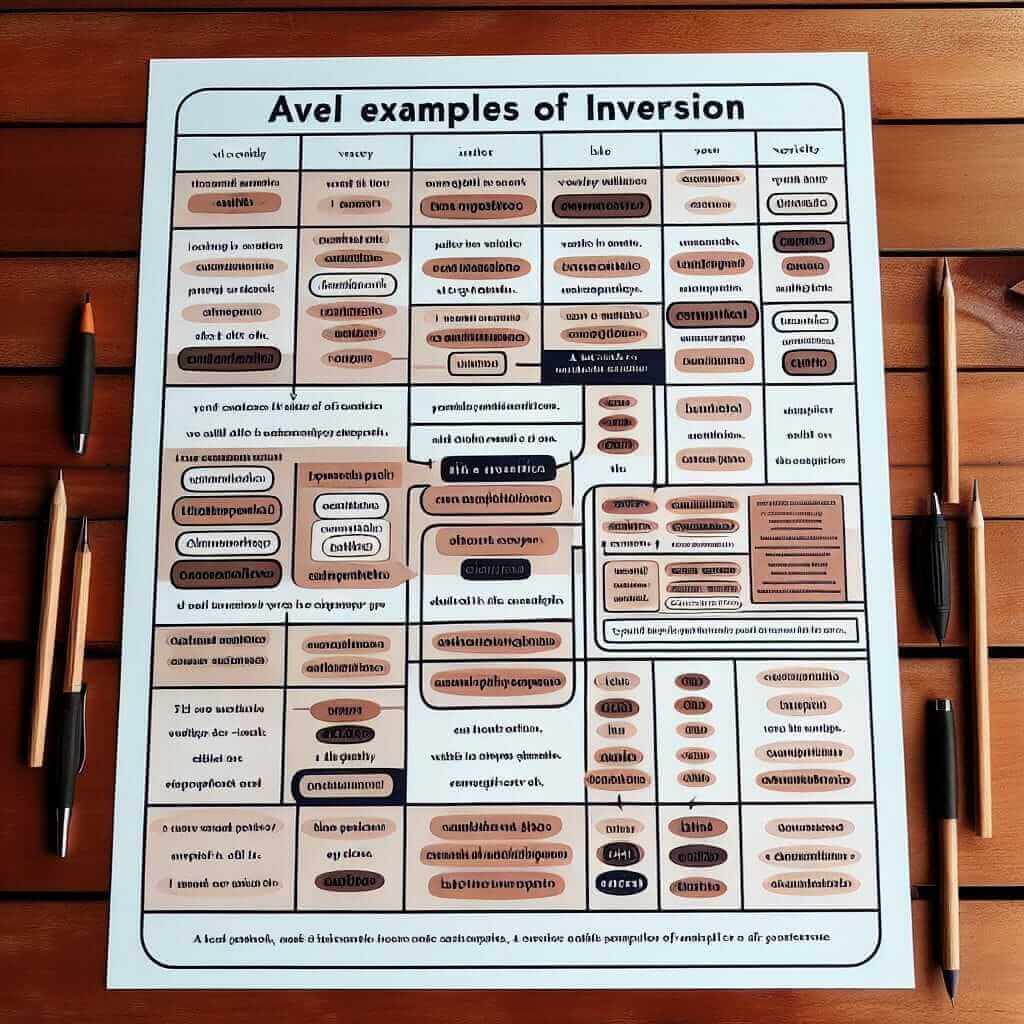“On no account should you open that door” – this sentence might sound formal and even a bit dramatic, but it perfectly illustrates a grammatical structure called inversion that can significantly boost your IELTS score. While not as common as other grammatical structures, mastering inversion showcases a sophisticated understanding of English grammar, which is highly valued by IELTS examiners.
Imagine encountering this question in the IELTS Writing Task 2: “Some people believe that economic progress is more important than environmental protection. To what extent do you agree or disagree?” Using inversion, you could write a compelling sentence like this: “Under no circumstances should economic growth come at the expense of our planet’s well-being.” This sentence is not only grammatically impressive but also presents your stance clearly and effectively.
Understanding Inversion in IELTS
Inversion is essentially reversing the typical subject-verb order in a sentence for emphasis and stylistic effect. It is often used with negative adverbials, adding a touch of formality and sophistication to your writing and speaking.
Why is Inversion Important for IELTS?
Using inversion correctly demonstrates a strong command of English grammar, a key factor in achieving a band 7 or higher in IELTS. It allows you to:
- Enhance your lexical resource score: Demonstrate a wider range of grammatical structures.
- Improve your grammatical range and accuracy score: Show control over complex sentence structures.
- Increase your chances of achieving a higher band: Impress the examiner with sophisticated language use.
Mastering the “On no account…” Structure
The phrase “on no account” is a negative adverbial that triggers inversion. Here’s how it works:
Formula:
On no account + auxiliary verb (should/must/can/will) + subject + main verb
Example:
- On no account should you interrupt the examiner during the speaking test.
Breakdown:
- On no account: Negative adverbial phrase
- should: Auxiliary verb
- you: Subject
- interrupt: Main verb
Application in IELTS:
- Writing Task 2: “On no account should we disregard the importance of education in developing countries.”
- Speaking Part 2: “On no account would I travel without doing thorough research about my destination.”
Exploring Other Negative Adverbials and Inversion Structures
While “on no account” is a common trigger for inversion, many other negative adverbials follow similar patterns. Let’s explore a few:
1. Never/Rarely/Seldom
Formula:
Never/Rarely/Seldom + auxiliary verb + subject + main verb
Examples:
- Never have I witnessed such a breathtaking sunset.
- Rarely do people consider the long-term consequences of their actions.
- Seldom is such generosity seen these days.
Application in IELTS:
- Writing Task 1 (describing a trend): “Never before has the demand for renewable energy been so high.”
- Speaking Part 3 (discussing abstract ideas): “Seldom do we take the time to appreciate the simple things in life.”
2. Not only… but also
Formula:
Not only + auxiliary verb + subject + main verb + but also…
Examples:
- Not only does regular exercise improve physical health, but it also enhances mental well-being.
- Not only did she excel in her studies, but she also actively participated in extracurricular activities.
Application in IELTS:
- Writing Task 2 (presenting a balanced argument): “Not only does technology connect people globally, but it also creates new avenues for learning and collaboration.”
- Speaking Part 3 (comparing and contrasting): “Not only is traveling a great way to experience new cultures, but it also broadens our perspectives.”
3. Under no circumstances/At no time/In no way
These phrases follow the same structure as “on no account,” using an auxiliary verb before the subject.
Examples:
- Under no circumstances are you to leave the exam room without permission.
- At no time during the presentation did he seem unprepared.
- In no way am I suggesting that all forms of technology are harmful.
Application in IELTS:
- Writing Task 2 (expressing strong opinions): “Under no circumstances should animal cruelty be tolerated.”
- Speaking Part 3 (responding to a hypothetical question): “In no way would I support a policy that discriminates against any group of people.”

Common Mistakes and How to Avoid Them
While inversion can elevate your language, incorrect usage can lower your score. Here are some common mistakes to avoid:
- Incorrect auxiliary verb: Ensure the auxiliary verb matches the tense and form of the main verb.
- Subject-verb disagreement: Inverted sentences still require subject-verb agreement.
- Overuse: Use inversion sparingly for impact; overusing it can sound unnatural.
Conclusion
Mastering inversion is like adding a powerful tool to your IELTS toolkit. It allows you to express yourself with more emphasis, clarity, and sophistication. By understanding the rules, practicing different structures, and being mindful of common errors, you can confidently incorporate inversion into your writing and speaking, boosting your chances of achieving your desired IELTS band score. Remember, practice makes perfect!